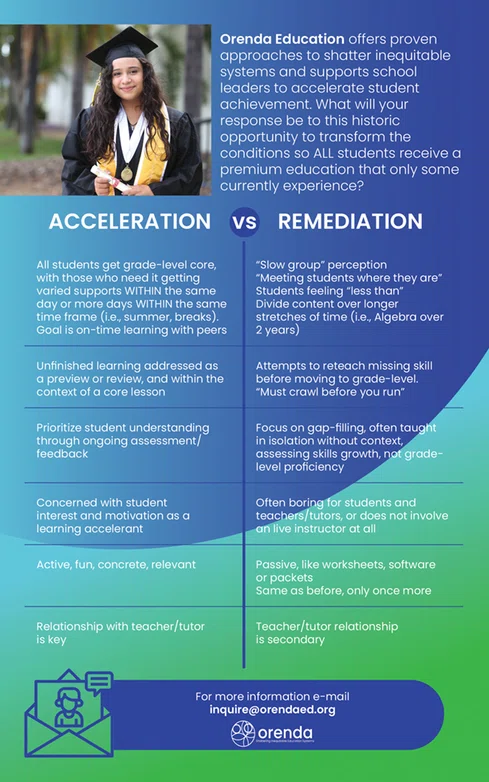Timeline for math framework extended
August 23, 2021
The State Board of Education will push back its timeline for revising the Mathematics Framework, which recommends districts keep all students in the same math classes through sophomore year.
The board voted in its July 14 meeting to move the vote for final approval from November 2021 to May 2022. This will provide the state additional time to incorporate concerns about the lack of acceleration into the guidance. A 60-day public comment period will now take place between December 2021 through February 2022. As a reminder, the framework is optional; no LEA will be required to adopt it. However, if LEAs think they would like to adopt the framework, the CA Curriculum Collaborative invites all LEAs to apply for a series of free, grant-funded workshops. (See article in this issue.)
Other highlights from the meeting are listed below.
General Board
Member Matt Navo resigned from the SBE because he accepted the position of executive director for CCEE. He will replace current Executive Director Tom Armelino, who will retire later this year.
ESSER III Expenditure Plan
In order to access ESSER III dollars, LEAs have to submit two plans: the Safe Return to In-Person and Continuity of Services Plan and the ESSER III Expenditure Plan, which details how LEAs will use the ESSER III funds. After consultation with the U.S. Department of Education, the SBE approved an extended deadline to submit the Expenditure Plan to Oct. 29, 2021. This will provide LEAs an additional month to complete the Expenditure Plan. Further, CDE hosted a webinar to assist LEAs in completing the form.
School Accountability Report Card
The 2020-21 SARC template has been modified to: 1) implement changes in state and federal accountability reporting requirements in response to the COVID-19 pandemic; 2) include teacher data in the SARC for the first time ever; this information will be pre-populated by CDE on behalf of LEAs; and 3) update the school years and fiscal years to reflect the date of the data collection.
As you may recall, ACSA was concerned that “local assignment option,” as defined under ESSA, would unnecessarily catch qualified, credential teachers. As a result, it would require LEAs to notify parents that their children’s teacher may not have the correct credentials. After additional advocacy, the SBE staff have agreed to remove courses that do not have associated teaching credentials from “local assignment options.” This includes AVID, student government, and leadership. The change is anticipated to be approved at the SBE’s November meeting.
Parent and Family Engagement – Self-Reflection Tool
Based on a study, CDE recommended and SBE approved updates to the Self-Reflection Tool for Priority 3. This includes: 1) revising the instructions to clarify that the ratings and narrative responses must be based on stakeholder input; 2) separate the current, single narrative prompt into three narrative prompts; 3) require LEAs to provide a response within each field on the Dashboard; and 4) update the rules to avoid null sign/response or “0.” These changes are just clarification; they are not additional requirements.
Contact Us
www.acsa.org
© 2021 Association of California School Administrators









